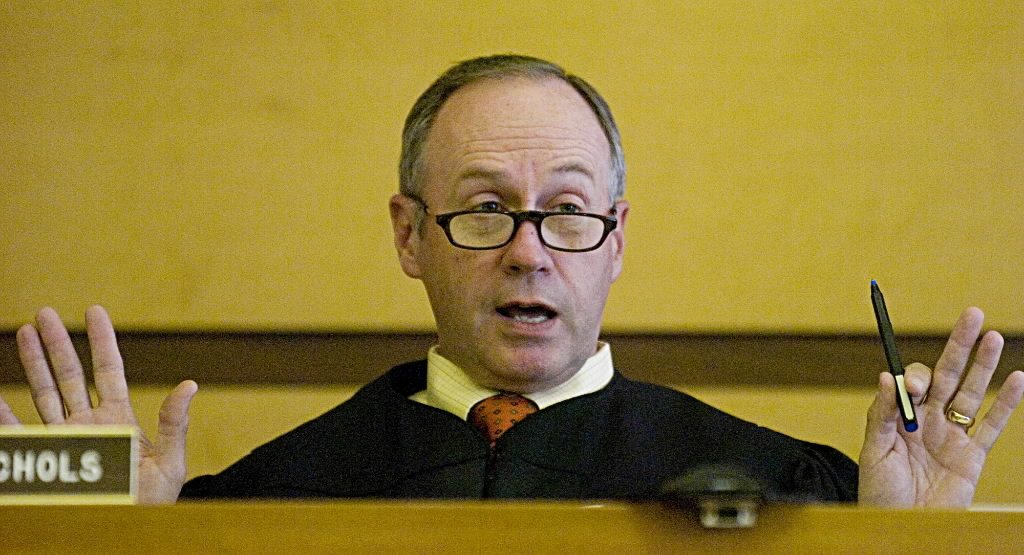There’s a story circulating around the Clark County Courthouse about a prospective juror who answered her phone during court proceedings.
It happened during jury selection on a criminal case in Judge John Nichols’ courtroom. The woman in her late 30s, sitting in the front row, shocked everyone when she walked out of the courtroom to take the call.
“I shook my head at her” to get her to end the call, Nichols recalled. “She held up her hand for me to stop.”
Needless to say, the woman wasn’t chosen for the jury panel.
The situation, though rare, represents a new challenge for judges: How to retain fair and impartial juries in a society strapped to their smartphones. As social media, such as Facebook and Twitter, continues to rise in popularity, more people tend to get their information from a variety of sources and stay connected to their phones everywhere.
The distraction of cellphones isn’t a new issue for judges aiming to keep proper decorum in the courtroom. But the way in which prospective jurors can find out about cases outside the courthouse is new.
“I think they’re in the habit of relying on (the Internet) for everything,” Nichols said. “The first thing they want to do is look (a case) up.”
In trials, jurors are always instructed to stay away from outside information that may influence how they view a case, because it may be biased or inaccurate or include information purposely kept away because of court rules. They are also instructed not to discuss the case with anyone.
Jury instructions updated
Another juror in a different trial in Nichols’ courtroom did try to do independent research. The judge had just seated the jury, and the case was on a recess when the juror looked up the defendant’s name on his smartphone. It didn’t affect the trial, besides the fact that the juror was kicked off the panel, but Nichols still sees it as an example of why judges have started imposing new instructions for juries.
Superior Court judges now include in their jury instructions an admonishment not to go on Facebook,
Twitter or any other social networking site to talk about the case or do research.
So far, Clark County hasn’t had any problems with juries breaking these rules, said presiding Superior Court Judge Barbara Johnson. As soon as they are instructed on the guidelines after being sworn-in, they usually abide by the rules.
“They usually are very sincere about seeing through their duties,” Johnson said.
This comes despite several stories throughout the United States of jurors tweeting during trials or posting comments on their Facebook pages about cases. In Arkansas, a juror was caught tweeting during a death penalty murder trial and an appeals court later threw out the defendant’s conviction.
Considering the problems courts in other jurisdictions have had, Johnson said judges are taking steps to ensure that doesn’t happen here. For instance, judges have started hanging posters in deliberation rooms, reminding jurors to be cautious with their phones. The poster has a picture of a smartphone with rules of proper phone etiquette.
Johnson said judges may also consider taking jurors’ phones away during trials (they are already confiscated during the deliberation phase).
Nichols said judges are simply trying to ensure the same impartiality that existed before the new technology and social media.
“It brings up all sorts of things we’ve never had to deal with before,” Nichols said.
Laura McVicker: www.twitter.com/col_courts; www.facebook.com/reportermcvicker; laura.mcvicker@columbian; 360-735-4516.



